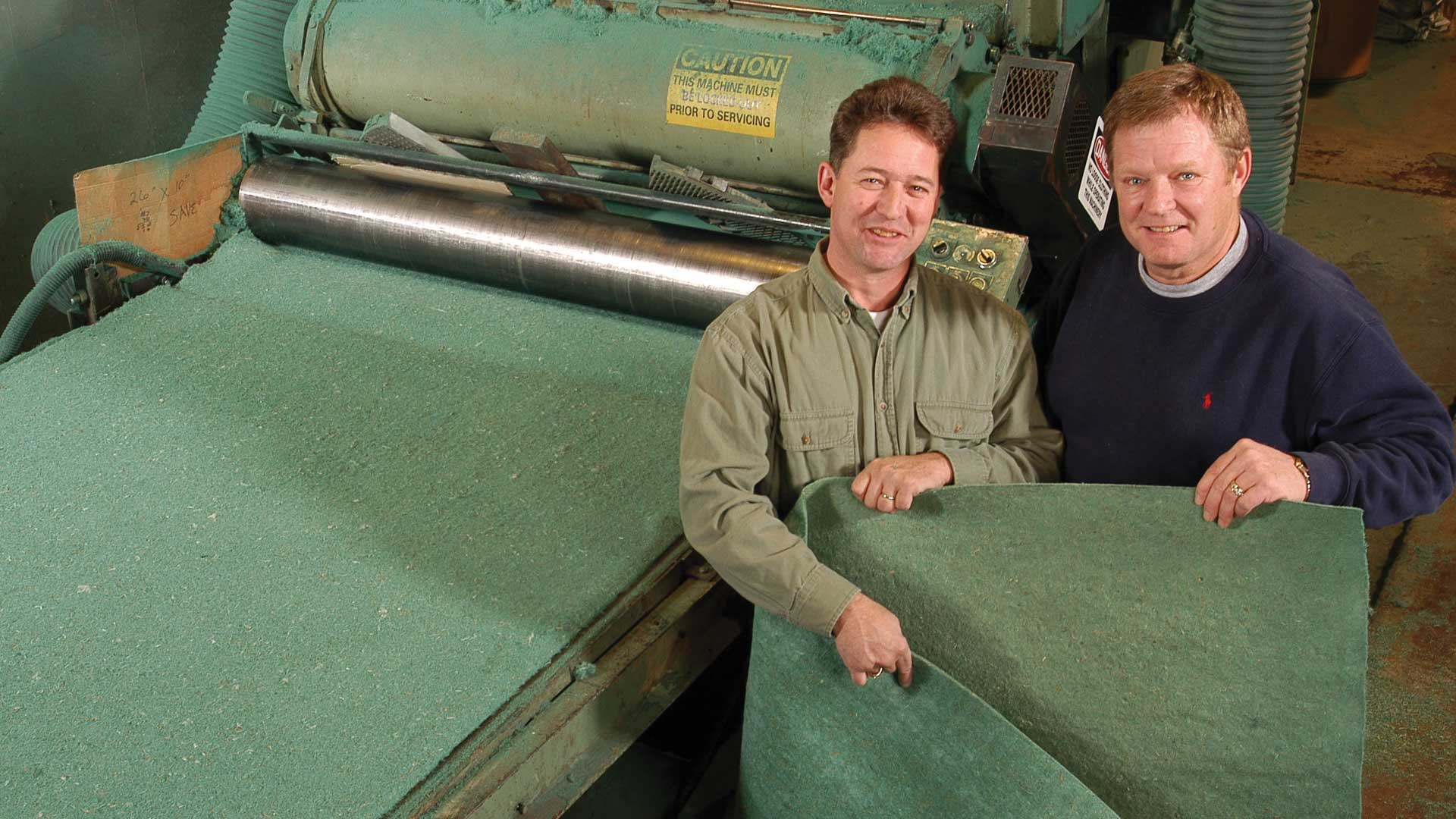St. Joseph, Minn. – Small numbers have never meant so much to Tony Schmitt and Darryl Metcalfe of USA Solutions.
The Compost-A-Mat producers are paying close attention to studies showing that hog operations using their cornstalk-based mats may have lower baby-pig mortality rates than those using rubber mats.
Last year, the Swine Vet Center of St. Peter supervised tests conducted by University of Minnesota researchers at a privately owned confined farrowing facility in central Minnesota. Litters raised on the cornstalk mats showed a 0.65 percent decrease in pre-weaning pig mortality compared to industry-standard rubber mats. The hog operation where the tests were conducted already had only an 8-percent baby pig mortality rate. Even a small reduction is significant as it means increased production from the same number of sows.
A second test round was just completed on a different herd, which showed a 9.3 pre-weaning mortality with Compost-A-Mat, verses 10.8 percent with rubber mats.
“In the world of hog raising, that is almost unreal,” says Metcalfe, who spent more than 25 years in swine herd management. AURI scientist Alan Doering, who helped USA Solutions develop the mat, adds: “For producers who raise thousands of hogs each year, a percentage or two improvement in mortality can mean tens of thousands of dollars.”
Rubber mats generally are reused after each pig litter is weaned. Even though they are disinfected before they are used again, not all pathogens are completely removed. Compost-A-Mats are single use and biodegradable.
The USA Solutions owners say their mats offer a better environment for hogs, providing comfort but not harboring pathogens that can lead to disease and higher death rates. Tests also show significantly lower E. coli and coccidiosis and 50 percent less scours in litters using Compost-A-Mats.
Metcalfe and Schmitt are already meeting with some of the nation’s largest producers, from North Carolina to Colorado. “We’ve got their attention,” Metcalfe says. “We have one producer who says he has had $1,500 in increased production by using about $250 worth of our mats.”
However, Metcalfe adds, many producers are skeptical of new products until they are proven. “Rubber mats have been the standard for 40 to 50 years and producers have some hesitancy to change,” Schmitt adds. “But our product is starting to get their attention. As some of these rubber mats wear out, they might start replacing them with ours.”
Compost-A-Mat sales have tripled in the past three months, and they are now available in eight states, Canada and Australia.
Metcalfe expects the current test round to be completed in the next several weeks. If results hold, USA Solutions will have some compelling selling points.
“We have a foot in the door,” Metcalfe says, “and we’ll let the mats and the results speak for themselves.”
Compost-A-Mat test results can be found on the USA Solutions website: compostamat.com

